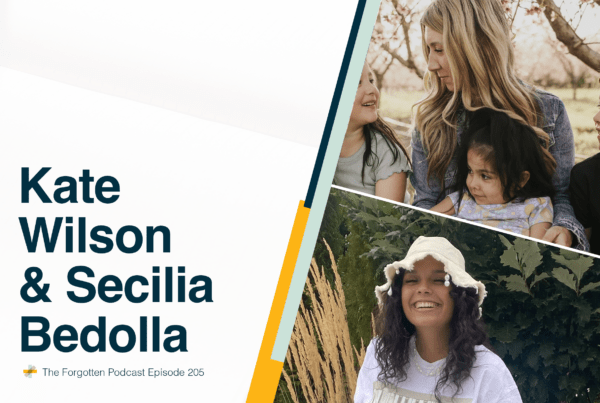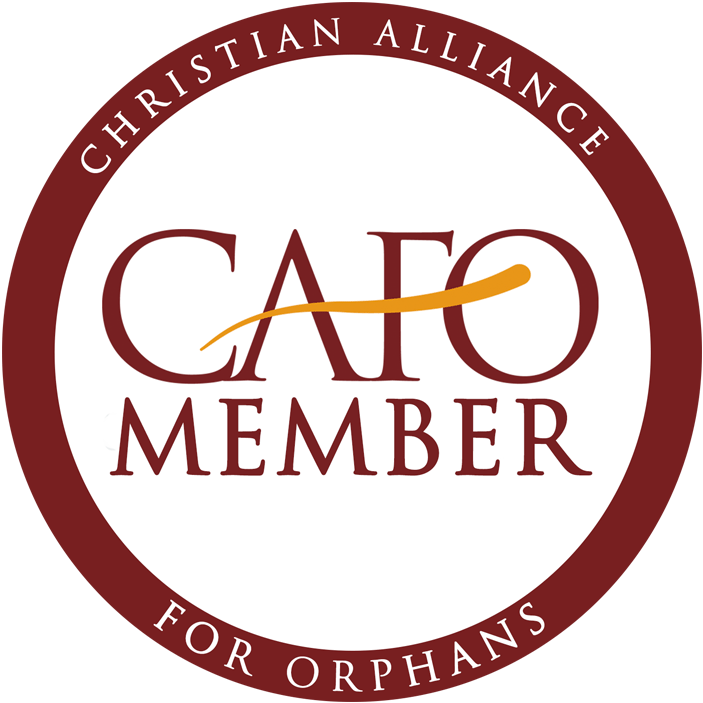
Today we’re diving into foster parenting expectations! Austin and Larisa Savage, a great young couple, joined me in the studio to talk about what their foster parenting experience has been like so far. They are one year in, and their story comes with a unique twist, but one thing is for sure, foster parenting has not been what they expected! Preparing for the unknown is hard, but I think this conversation is a great step in the right direction. I often say about adoption, “Expect the unexpected.” The same is true for foster care. Refining expectations is the name of the game!
HERE ARE MY 3 TAKEAWAYS FROM OUR CONVERSATION:
1. Life changes in a matter of moments with the arrival of new kiddos to love.
The wait from July to October, coming after months of training and paperwork, felt like an eternity for Austin and Larisa as they anticipated a call from their agency. They began to question whether this opportunity was a closed door. Then, the call came. Though they were expecting a placement of a baby, the worker asked if they would take in two toddlers, and they quickly said yes! With nervous energy, they rushed home and waited for the kids to get there. They waited and waited throughout the day. I remember that feeling in our case. I was so excited to see the van pull up with the two boys being placed with us! At 4p, a caseworker pulled up to Austin and Larisa’s home, put a child in each of their arms, and rushed off. She had other siblings in the car to bring to another home. Like that, they had two toddlers with little known information about them, uncertainty about how to care for them, and few resources that came with them.
“They showed up, they handed us a Pack N’ Play, and both kids were in our arms; And they handed us a piece of paper, and said, ‘you’ll need this,’ and they left.”
2. Loving biological parents can be as simple as reminding them that you love their kids.
Larisa jumped into connecting with the kiddos’ biological parents right away, getting their mom’s phone number, and texting photos each day. They embraced the idea of loving not just the kids in their care but their whole family. This connection got harder and harder to maintain as the months passed and visits were missed. It felt like they were the only ones initiating, and that was disappointing. Particularly with COVID-19 and the move towards video call visits, it was a lot of work to keep two toddlers with limited vocabulary engaged. That’s when they realized that maybe loving biological parents could look different. Austin remembered meeting Mom for the first time, not knowing what to anticipate in terms of her reaction to them. She said, “Thank you. Thank you for making sure they are safe.” And that was enough for her. She knew that they would keep her kids safe.
“We’ve shown that we love their kids, and that is something we take seriously and will take seriously for as long as we have them.”
3. Children who have experienced foster care have trauma, no matter their age.
Trauma has no bounds in terms of age. Whether a child that comes into your home is a newborn, a teenager, or somewhere in between, their life before you involved neglect or abuse and now includes loss. For one of Austin and Larisa’s kiddos, his trauma came out in the form of banging his head on anything and everything. With limited vocabulary but with knowledge of what he wanted, he would get frustrated, and his behavior would turn chaotic. Their little girl would become defiant and refuse to do what they were asking. Triggers would set them both off, crying inconsolably at what seemed like random times. It was hard not to get frustrated by this, and they had to encourage one another in these moments. They had to identify for one another that this could be a way that their kids were acting out of their trauma. Austin and Larisa had to make the best parenting decisions they could in light of knowing that there was a lot they didn’t know about the beginning years of their kiddos’ lives.
“We had to be careful to not fault our children for the environment that they grew up in.”
RESOURCES FROM TODAY’S SHOW
What Austin and Larisa are reading about trauma: The Whole Brain Child
For the grandparents in your life: S1E9: The Difference a Grandparent Can Make in the Life of Your Foster or Adopted Child
Follow Austin on Instagram and Twitter
Follow Larisa on Instagram
Listen to Austin host Jami on The 95 Podcast: How Churches Can Support the Foster Care Community

Meet Our Guests
Get encouragement and updates in your inbox.
Be the first to know about new episodes, posts, resources, and stay in the loop about what’s coming up.
Other Episodes You Might Enjoy:









